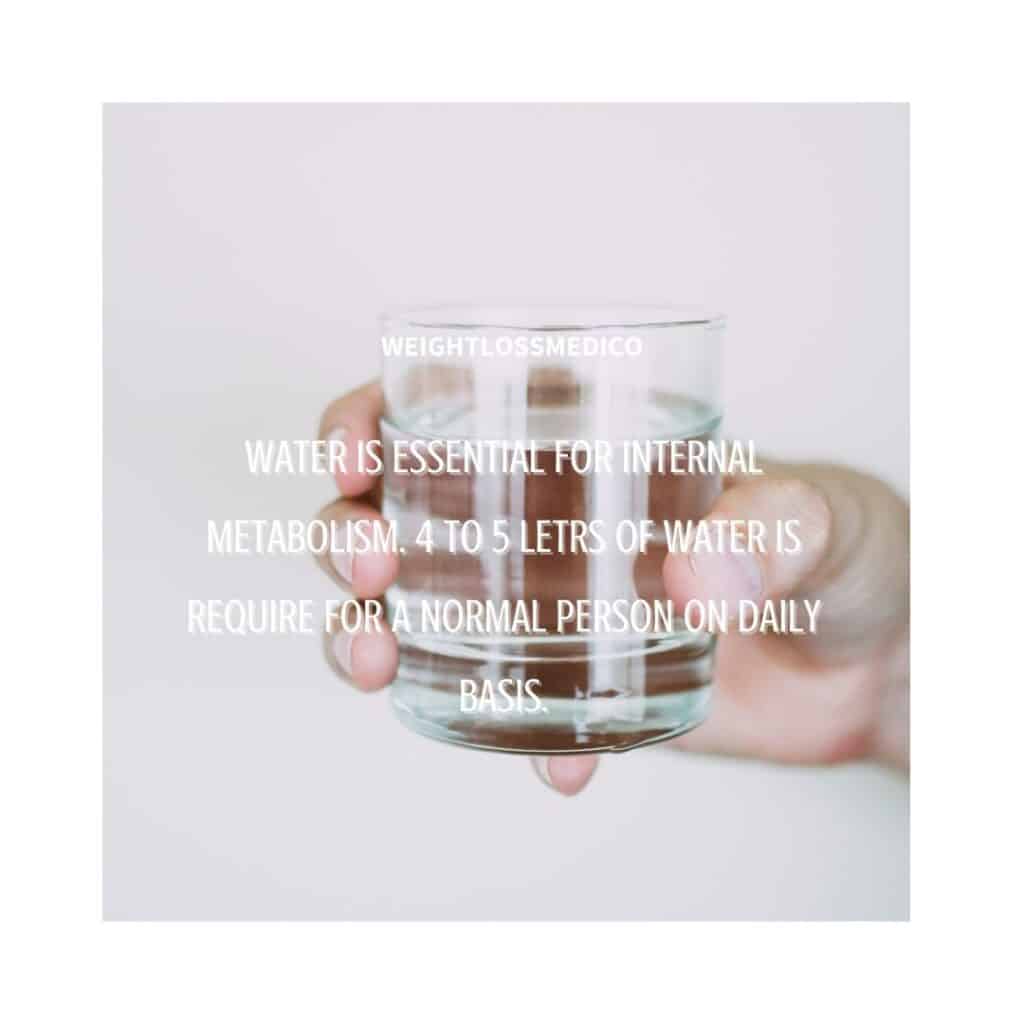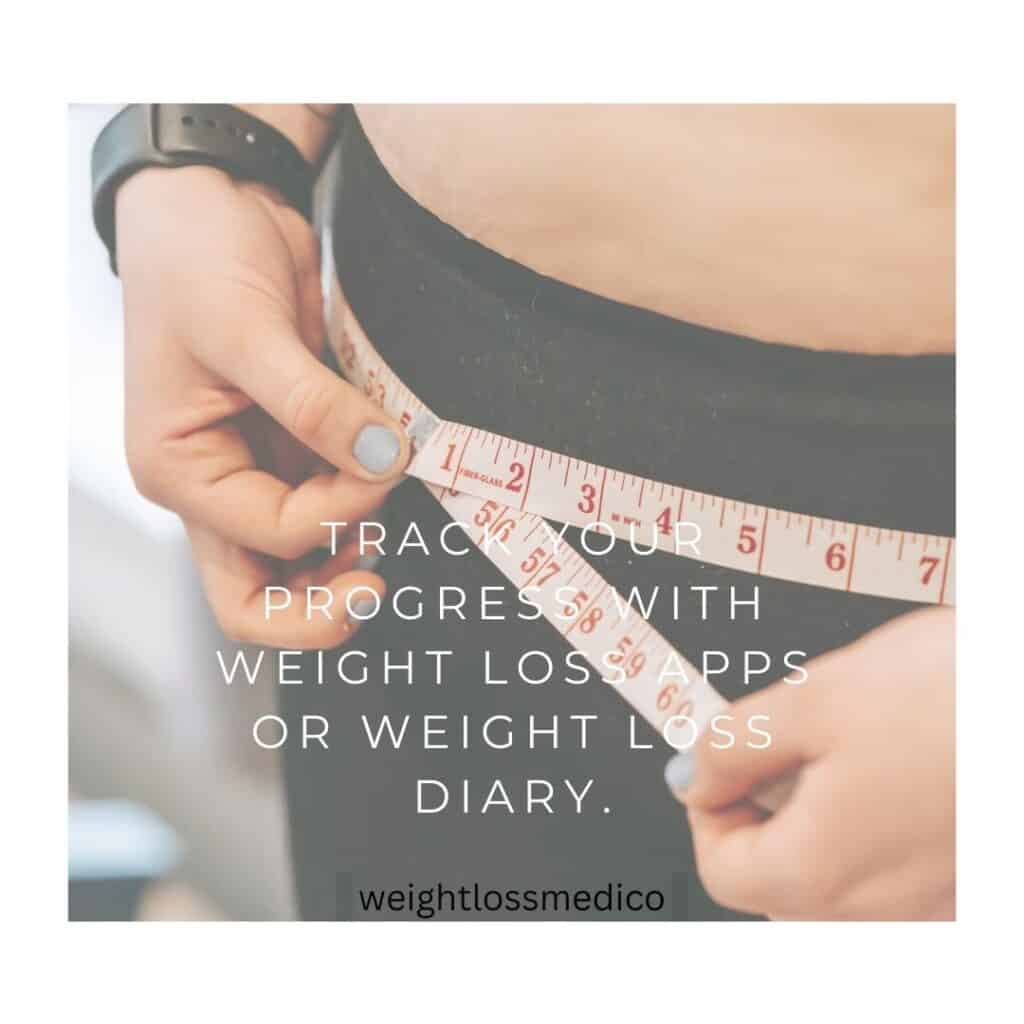Welcome to our comprehensive guide to weight loss for beginners. If you’re starting your weight loss journey, you may find a large amount of information online. We’re here to simplify things for you. We will provide you with actionable steps that you can take to achieve your weight loss goals.

Before we start, you should know that weight loss is a gradual process and requires consistency, patience, and determination. There are no magic pills for weight loss it requires patience and making small changes to your lifestyle that will lead to long-term results.
7 Actionable Steps for Sustainable Results
Below are seven important steps that you can take to start your weight loss journey.
1. Set Realistic Goals
The first step in your weight loss journey is to set goals that are real. Everyone wants to lose a lot of weight quickly, but this is an unhealthy approach. A healthy weight loss rate is around 1-2 pounds per week.
Start by setting a goal to lose 5-10% of your current body weight. For example, if your weight is 200 pounds, aim to lose 10-20 pounds. This is a realistic goal and one can easily achieve it. These small goals will make significant improvements in your health. Now you have set a goal we will move to the next step.
2. Create a Calorie Deficit
A calorie deficit is a difference between the energy you spend and the energy you make by digesting your food. To lose weight, you need to create a calorie deficit. This means taking fewer calories than your body needs to maintain its current weight. Approximately One pound of body fat is equal to 3,500 calories, so to lose one pound per week, you need to create a deficit of 500 calories per day.
A calorie deficit can be created in two ways:
- Burn more calories through exercise
- Reduce calorie intake
Research shows that a combination of both is the most effective approach.
3. Focus on Nutrient-Dense Foods
Nutrient-dense foods are those foods that contain essential nutrients that are required for the body to function properly. These foods contain high quantities of nutrients like minerals and vitamins that are necessary for the body and contain very low fats and carbohydrates. Fruits, vegetables, lean proteins, and whole grains are examples of nutrient-dense foods. They contain very low amounts of calories.

Try to incorporate these foods into your meals and snacks. They will not only provide your body with nutrients but will also help you feel fuller for longer.
4. Stay Hydrated

Drinking water is essential for weight loss. It will help to flush toxins from the body and also help in reducing feelings of hunger. You should drink 5 to 6 liters of water daily. Water is also important for internal metabolism in which fats are burned and energy is produced.
5. Get Moving
Exercise is an important component of weight loss. It helps in burning calories and building lean muscle mass. Exercise reshapes our bodies and boosts our confidence. Exercise also increases our metabolism which in turn burns fats and calories.
Start by incorporating small physical activities into your daily routine. This can include going for walk or riding a bicycle. You can also join gyms and sports clubs for more exercise. In the start, it is very hard to do regular exercise but once you become used to it you can increase the intensity and duration of your exercises.
6. Get Enough Sleep
Getting enough sleep is important for weight loss. Sleep maintains equilibrium between hormones that control our appetite. When we are deprived of sleep, the Ghrelin hormone is produced which increases appetite, which results in more hunger, leading to more eating habits and it ultimately leads to increase weight gain. Getting more sleep also leads to weight gain due to the inactivity of our bodies.
Aim to get at least 7-8 hours of sleep per night. Try not to sleep more than this time. Making a proper sleep schedule can improve sleeping habits.
7. Stay Accountable
Accountability is key to achieving your weight loss goals. Consider joining a support group or working with a personal trainer to help keep you on track.

You can also track your progress using a food diary or weight loss app.
Conclusion:
In conclusion, weight loss is a gradual process that requires consistency and determination. By setting realistic goals, creating a calorie deficit, focusing on nutrient-dense foods, staying hydrated, getting moving, getting enough sleep, and staying accountable you can easily start losing weight.
